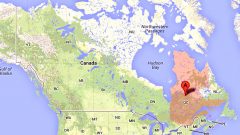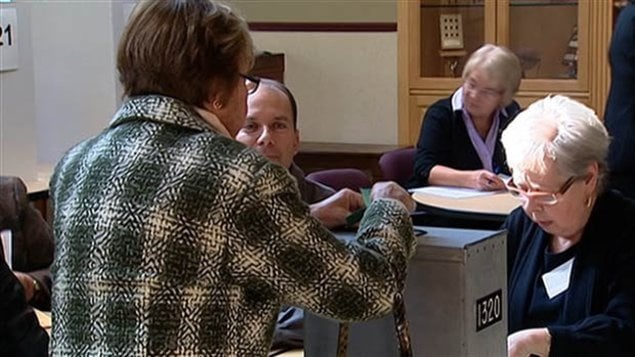The provincial election in the mainly French-speaking province of Quebec is once again focusing on the issue of a referendum to separate from Canada and become an independent state.
This has been an ongoing issue in Quebec and Canada since the rise of the separatist Parti Quebecois in 1976, and referendums in 1980 and 1995, in which separation was voted down by the Quebec electorate. In 1995 following the very narrow rejection of separation by Quebec voters, the federal government asked the Supreme Court of Canada to give its legal position on the possibility of a break-up of the country.
David Schneiderman is a constitutional expert and professor of law at the University of Toronto. He is also the author of several books on constitutional issues.
ListenThe two major political parties in Quebec are the separatist Parti Quebecois (PQ), and the federal-leaning Liberal Party (PLQ).

Another party, in third place is the Coalition Avenir Quebec (CAQ) which is separatist but only as a distant priority. Other very marginal players are the leftist and more radical separatist parties, Quebec Solidaire and Option Nationale, and then the environmental Green Party.
The issue of separation, which is the stated priority of the PQ has always been soft-pedalled during elections as it is not popular among the majority, with recent polls suggesting 2/3 of Quebeckers are not in favour. However it came to the fore in this election when a star candidate for the PQ, Pierre-Karl Peladeau, who controls most of the media in the province, announced his candidacy with raised fist, ”we want a country”.
The current leader of the provincial minority government, Pauline Marois, is again trying to push separation to the back burner in the campaigning, while also attempting to assuage Quebec voters concerns by saying not a great deal would change for them in a new country: they would keep the Canadian dollar, the Canadian passport, and there would be no border controls. The PQ also suggests that negotiations with “Canada” on a vast number of issues would go smoothly and quickly.

Shaded area indicates province of Quebec. Largest in territory of the provinces, second largest in population with almost 8 million people, just over 6 million listing French as mother-tongue. (google) CLICK to ENLARGE
Professor Schneiderman points out the Supreme Court has ruled that separation would be legal under certain conditions but those conditions are political not legal ones. It also was very vague in the defining of a process of negotiations for the billions of dollars at stake in terms of provincial debt, paying for federal infrastructure and even territorial claims.
International trade and other deals would be renegotiated
Professor Schneiderman says in the end it would be better for Canada and a Quebec country to negotiate in good faith but he says a more likely scenario would be a very long and very bitter negotiation on a vast number of issues. In addition as capital flees uncertainty, the economic fallout would be bad for Canada, and very bad for Quebec, he said.







For reasons beyond our control, and for an undetermined period of time, our comment section is now closed. However, our social networks remain open to your contributions.